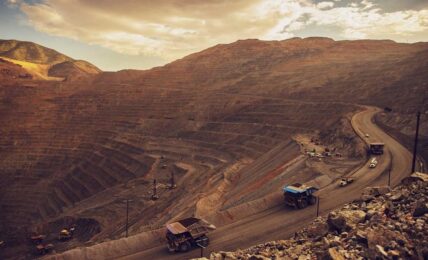By: John McCalla-Leacy, Head of Global ESG, and Sarah Nelson, Global Nature Lead, KPMG International
We may only be midway through 2024, but the countdown to COP29 is now well and truly underway. When delegates meet at the end of the year in Azerbaijan, they’ll face some sobering facts. The world is continuing to warm at an unprecedented rate. Our mission to tackle climate change is faltering, putting pressure on weather systems and the nature and biodiversity that keeps our planet alive. But COP29 will not be the only COP taking place this year.
In October this year, the world’s Governments will come together in Colombia for the “Biodiversity COP” – the little sister to the Climate COP to discuss progress towards the Global Biodiversity Framework agreed in December 2022. Over the past week, we joined colleagues in Kenya, on the sidelines of the preparatory meeting for the “Biodiversity COP” where governments, civil society and businesses were discussing two key issues. Firstly, how they were translating The Global Biodiversity Framework into national level strategies and action plans and secondly, how they would mobilise the required finances to be able to effectively drive action at the national level.
There’s a reason this event took place in Africa. The continent is home to many of the world’s most biodiverse regions, containing 8 of the 36 globally recognised biodiversity hotspot sectors and a staggering 1,812 national parks, covering 3.1 million square kilometres. The rainforests of the Congo Basin are also among the world’s most important carbon sinks. This removal of carbon from the atmosphere is valued at US$55 billion per year. However, deforestation is progressing at an alarming rate from the Congo Basin, across West Africa, diminishing the continent’s ability to provide key essential ecosystem services – such as food, water, key commodities and clean air.
We’re often asked why businesses like KPMG are so actively engaged in this conversation. Surely, we should be leaving it to politicians and NGOs to find solutions? In reality, we all have a role to play. Our discussions brought all parties to the table and focused not only on the risks the world faces, but the abundant opportunities that are there for the taking if we embrace a bolder approach that puts sustainability at the heart of future growth.
The city of Nairobi was the perfect backdrop for our discussions. Home to the headquarters of the United Nations Environment Programme, the leading global authority on the environment with a mission “to inspire, inform and enable nations and peoples to improve their quality of life without compromising that of future generations.” and in a country which hosts some of the most iconic wildlife sights in the world.
If you’re a business leader outside Africa, you may be wondering why this matters to you? In short, it matters to everyone. The consequences of us failing to respond to the nature and biodiversity crisis is far reaching and will impact not just the African economy, but businesses globally and wider human well-being. Pause for a moment and try to imagine running a business without the basic critical raw materials that so many industries depend on. If we don’t have the quantity and quality of materials, food and medicine to live, we’ll face a potentially catastrophic challenge for survival.
The World Economic Forum’s latest Global Risk Report puts the challenge into perspective. Biodiversity loss is classed as the third highest long-term business risk, with extreme weather number one. Geopolitical uncertainty and a rising cost of living may be the big topics in board rooms and political gatherings, but we should be in no doubt that our long-term existence ultimately relies on us making some of the boldest, toughest decisions that we’ve ever had to consider.
In COP26 in Glasgow – we sat in a room with 700 CEOs and heard John Kerry pronounce that this was the COP that business showed up to, despite not being invited! At the time it was said, that whilst governments can deploy billions, it will be the private sector that are able to deploy trillions. We are anticipating this same trend of business engagement at the “Biodiversity COP” in Colombia in October this year and with an estimated “nature finance gap” of $4.1 trillion needed by 2050, businesses will be a key voice at the table. Not just for their ability to catalyse more finance, but also because it is businesses and not governments that implement new innovations, new products and new services.
Slow but steady, positive steps are being taken, but African business voices will have a critical role to play in shaping the future. New and emerging regulation coming out of the EU will also have impacts across the African continent. For example, the EU’s new Deforestation Regulation (EUDR), which requires companies trading in cattle, cocoa, coffee, oil palm, rubber, soy and wood to conduct extensive diligence on the value chain to ensure the goods do not result from recent deforestation, forest degradation or breaches of local environmental and social laws on all products being imported into the EU. The new regulation will apply from 30 December 2024. Given that most of these commodities are grown across parts of Africa, you can see the real impact that tightened regulations and laws could have on Africa’s supply chain and future economic prosperity.
While we’re acutely aware of the crisis facing our world right now, we come away from Kenya with a sense of cautious optimism that we’re slowly heading in the right direction. It was clear from our conversations that African businesses, civic groups and politicians are playing a greater role in the nature and biodiversity dialogue. They understand that acting now is strategically important. They have a front row seat, witnessing the impacts of climate change, the continued decline in nature and biodiversity and the risks that both provide to the economic sustainability of their businesses. In our respective roles, we’re working closely with our expert colleagues, as well as the wider community of nature and biodiversity practitioners across our global organization, to ensure that businesses like KPMG are able to empower and facilitate the change that is so urgently needed. The nature and bio-diversity challenge is unprecedented in scale, and we require an unprecedented response.



